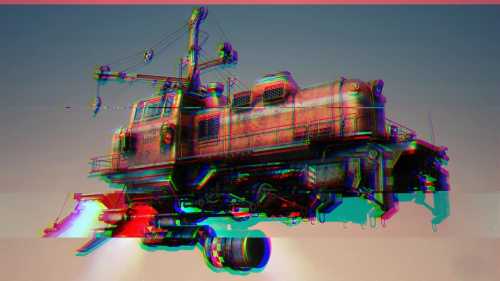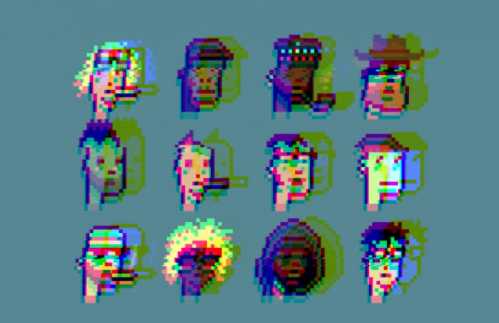It seems all anybody wants to talk about nowadays is NFTs. We want to mint them, sell them, trade them, philosophise about them… all while remaining painfully unaware of financial, ecological, and societal harm they cause. But enough about me and my seminal article about the profound stupidity of NFTs. Let’s talk about what NFTs are actually good for — in a way that goes beyond lazy punditry.
More specifically, I want to explain how NFTs can (somewhat) improve life in 2022 and beyond. After more than a year of exploring the NFT universe and consuming an inhumane amount of buzzwords, I’ve narrowed it down to the following five features. Rest assured that none of them include the word “decentralised."
Related: 10 Reasons Why NFTs Are Stupid
1. Re-creating a social contract for young men
Two years ago, COVID laid waste to our social lives. No more in-person school. No more work events. No more bars and clubs. This hit young people hard. Especially young men, who weren’t doing so well before the pandemic to start with. Many retreated online, where anonymity is both a great equalizer and a great dehumanizer. Indeed, it’s easy to hurt someone you don’t see or know. The social contracts that link us seem to have become more tenuous, we’re all seeing it.
NFT communities provide a healthy alternative to this lonely misery. Lazy Lions, Bored Apes Yacht Club, Wall St Bulls… every NFT collection has its own group of fans and followers. They often gather on Discord channels where young men (it’s always young men) talk about much more than bad art on the ETH blockchain. They argue about society, technology, the stock market… In one word, they belong to a community, something many are clearly in need of.
In these communities, NFTs have two functions beyond mere financial dealings. Primarily, they act as artifacts of networks, which reinforce the community’s value by being the one thing everyone has in common. They can also represent voting shares in the community, whether officially or unofficially. This, in effects, gives everyone participating in the conversation a voice, whereas they may not always have one in the real world. Thanks, unbridled capitalism.
NFTs are creating a sense of belonging for thousands of people that really need it, which is a clear net benefit for the world. If anything, it proves that we do, in fact, live in a society.
2. Building brand multiverses
Speaking of unbridled capitalism… NFTs will allow companies to create vast multiverses to rival Marvel’s craziest dreams. And we’ll thank them for it.
Thanks to the blockchain and a bit of coding magic, the silly JPEGs we like to make fun of can be made to have functional value beyond their mere existence. They don’t even have to be JPEGs — a bit of code is enough. Brands have realised this and are working hard towards creating brand metaverses using NFTs. Let’s take an example to avoid relying on buzzwords. I like to use Nike: it is not a technology company but that sells physical products.
You buy a pair of Air Max. With that pair, you get a unique, non-fungible token. You use that token to log into an app. It’s a one-time token (blockchain!), so don’t lose it. On the app, you buy some limited editions products or some of your favourite sports person’s memorabilia. You get a few more unique tokens. You combine them to create a key that unlocks access to a personalised message from Lebron James. Awesome! Because you’re an athletics fan, you also go to the World Athletics Championships. You use your Nike wristband to have access to better seats, and because you’re a fan, you also buy a GIF of your favourite athlete. That athlete goes on to win a race, so you can re-sell the GIF for a higher value… or keep it for sentimental reasons. It can go on and on, continuing a happy, unbridled, techno-capitalistic circle. And all the while, both your brand loyalty and switching costs increase.
Composability in this way is a very powerful concept for companies, and this is only the beginning for them. Gall’s Law states that successful complex systems evolved from simple systems. As such, today’s silly internet pictures are the basis on which companies will build empires. Granted, this doesn’t improve the world for you, but it does create shareholder value so… a net draw for humanity?
3. Funding new ventures
As we’ve alluded to above, NFTs have value in 3 ways. They have a function, an emotional value as a collectible, and can be mere carriers of value depending on their latest trading value. With this in mind it’s easy to imagine entrepreneurs using non-fungible tokens to raise funds for future ventures.
Sure, they could always crowdfund it, and give little rewards to people who donate. But the upside is limited for the donors, thus limiting the amounts received.
By issuing unique tokens, you can grant access to certain functionalities to early adopters. As the project hopefully becomes successful, these tokens become more valuable. That’s partly because of their functionality, but also because they were among the firsts to be minted. The nature of NFTs also ensures that fans could continue benefiting from updates for years to come. This means early followers will also be evangelists as they will benefit from the venture’s success.
In many ways, this is a mix between crowdfunding a project and issuing shares on private or public markets. You get funding, do away with investors asking for a percentage of future profits, and create a community invested in your success. Maybe, just maybe, you also reduce the accumulation of wealth in only a few pockets as an added bonus.
4. Re-defining ownership
Today, I can purchase a car for $30K and resell it a year later for $22K to someone who will themselves trade it for $15K. In 2022, I will not see that last transaction. In the future, however, I may get a small percentage from the second sale thanks to smart contracts which track tokens.
This leads us to an important question: what will ownership mean in 2030? Can I retain very partial ownership over an asset for a long period of time? Can I own the “concept” of an object? Can I own something that is free? It’s easy to make fun of NFTs when they reproduce physical assets like pictures and movie clips. But what will happen when we create tokens with no basis on reality? How will intellectual property laws be enforced?
The tragedy of the commons states that overconsumption hurts everybody in society. Could NFTs add scarcity in a way that ensures ownership is respected while also honouring the Internet’s inherent freedom?
There are a lot of questions to raise. The law hasn’t planned for this in the past so answers are muddy… but contracts in the future will be sure to include these ideas. Today, we can go no further than simple conversations around the topic. But public discourse often shapes actions, and discussing these ideas could help ensure future rules are fair.
5. Creating hedonic value in a world that’s lacking it
At the end of the day, why can’t I just like a silly picture and enjoy owning it as a piece of internet history, or as the totem of a community? What’s so wrong with that? For all its glory, the digital world has always lacked biographical indexicality — a way of seeing the full history of a digital asset. And history has value, if only in the eyes of its beholder. As such, NFTs create hedonic value: owning one creates pleasure for its own sake.
A fan of a piece of art or music might be willing to pay a lot for a token of ownership, as it represents something of value to them and their peers. Meanwhile the files remain free and available. Why would fans want to restrict access to something they like?
This means creators can make a bit of money, the internet stays free, and a little joy is made along the way. Not everything needs to make sense. Not everything needs to have value. We could stand to be reminded of that more often.
...
NFTs can be stupid. Intensely so. BUT they’re not as stupid as their detractors would like you to believe. The technology that underlies them is fascinating and will no doubt change the world.
We are still at the early stages of the NFT craze, and can still define what they go on to become. By mocking it, we are not fully participating in a conversation that may ultimately impact us all. We must do better, while not being naive about why some would have us buy blindly into the craze.
Good luck out there ✌️


